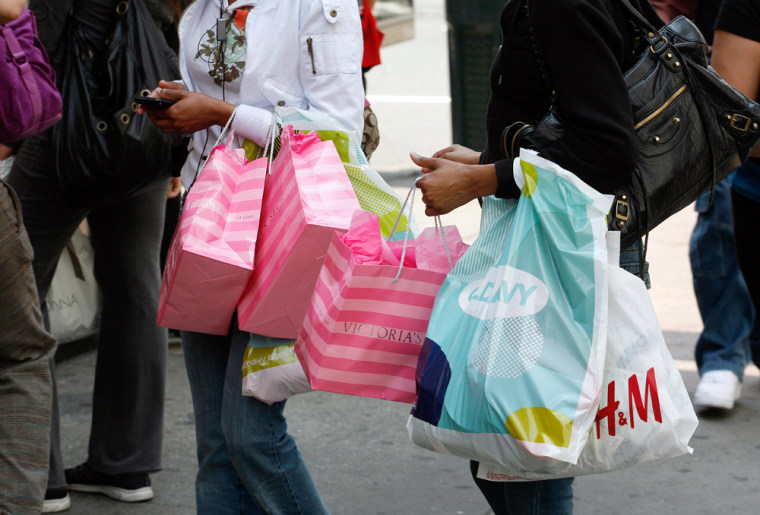How would you like to go shopping in your spare time – and get paid thousands of dollars to do it? That is the lure of mystery-shopper ads. Become a secret shopper, the ads say, and you will make good money, eat at fancy restaurants, shop at upscale clothing stores and stay at luxurious hotels – for free!
Warning: It’s not going to happen.
Most of these “help wanted” ads for mystery shoppers or secret shoppers are scams. The crooks use them to con people into paying a small fee – usually less than $100 – for information that is readily available for free.
Now, there is a new and much more costly twist to this old swindle. It combines the business opportunity scam with the counterfeit check scam.
“Two scams for the price of one,” says Charles Mattingly, CEO of the Better Business Bureau in Louisville, Ky. “It’s a deviously clever scam,” he says, “one of the most brilliant ones I’ve seen, if you can call a scam brilliant.”
Fall for it and you will lose thousands of dollars.
One victim’s story
In April, truck driver Doug Jacobson was looking for work when he spotted a classified ad in an Indianapolis newspaper. A Canadian company was looking for a “customer service evaluator.”
Jacobson called the number and got the job. No interview was required.
His first mystery-shopping assignment came in the mail. The packet of materials included a time sheet, a code of business conduct and ethics, a survey questionnaire, and surprise – a check for $2,500.
The letter from Phoenix Direct Marketing Group said this was “a paid training assignment” to be completed within 48 hours. Jacobson would be paid $125 per hour for two hours of work.
“I was out of a job at the time, so $250 sounded pretty good,” Jacobson told me.
The letter said the objective of this assignment was to “evaluate the effectiveness and efficiency of a payment system called MoneyGram, which is available at all Wal-Mart locations.”
Jacobson followed the instructions. He cashed the check, kept $250 and wired the rest of the money to the company’s address in Ontario, Canada. Jacobson couldn’t’ wait to get his next assignment.
Instead, about a week later he heard from his bank. The check was bogus and the bank wanted the $2,500 back.
“I felt pretty stupid,” Jacobson says. He tried calling Phoenix Direct to complain, but no one ever answered the phone.
I called, too, many times on various days. Each time I got a recorded message that said, “The person you are calling is unavailable at the moment.”
The losses can be staggering
The BBB’s Charles Mattingly has heard this story before. He says the counterfeit check looks legit. “So if you go to your bank to deposit or cash it, it will deposit real fine.”
By the time it bounces, the money has been wired out of the country and the victim must repay the bank. “That money is history,” Mattingly says. “It’s gone and they’ll never see it again.”
He’s seen victims of this scam lose as much as $5,000.
Phoenix Direct Marketing Group has due to suspicious marketplace activities.
Yes, you can get paid to shop. Being a mystery shopper can be fun and rewarding work. But you’re not going to make a fortune in your spare time as the scammers want you to believe.
“You won’t wind up on ‘Lifestyles of the Rich and Famous,’ ” says Anthony Giorgianni, associate finance editor at Consumer Reports. He spent months looking into the secret world of secret shoppers for an article in the August/September 2007 issue of Consumer Reports Shop Smart magazine.
Mystery shopping is a legitimate business with more than 1.5 million secret shoppers across the country. Companies rely on these undercover agents to give them honest feedback about their customer service.
But the pay isn’t great. According to the Mystery Shopping Providers Association, the typical assignment pays about $10 to $20.
The scam ads talk about all the neat things you’ll get to buy and keep. That is rarely the case. You may get a free meal or movie, or a free oil change – if you’re checking out a quick lube place, but you won’t take home a free laptop or designer outfit.
Something else to remember: There are expenses. You should be reimbursed for most of them, but not gasoline. Depending on the assignment, you could wind up losing money.
Some people do make a living being a mystery shopper, but Consumer Reports says that is the exception. Giorgianni says based on his research, you might make a few hundred bucks a month, maybe.
Don’t get burned
This is one scam that’s pretty easy to avoid. Skip the “mystery shoppers wanted” ads – whether online or in the newspapers – since most of them are bogus.
“If you’re asked to pay money to get a job as a mystery shopper or to get a list of companies looking for mystery shoppers, don’t do it, because you will lose that money,” says Lydia Parness, Director of the Bureau of Consumer Protection at the Federal Trade Commission.
Don’t trust a money-back guarantee. If the ad was placed by a con artist, that guarantee is worthless.
All the information you need about becoming a mystery shopper and finding out about work assignments is available free at the Mystery Shopping Providers Association. You should also visit a site called Volition. This is where real mystery shoppers hang out to share experiences and give or get advice.
Most importantly: Never accept a job that requires you to cash a check and wire money. No legitimate mystery-shopper service would ever make you do this. Keep this in mind: You could be prosecuted for cashing a counterfeit check.
More information
